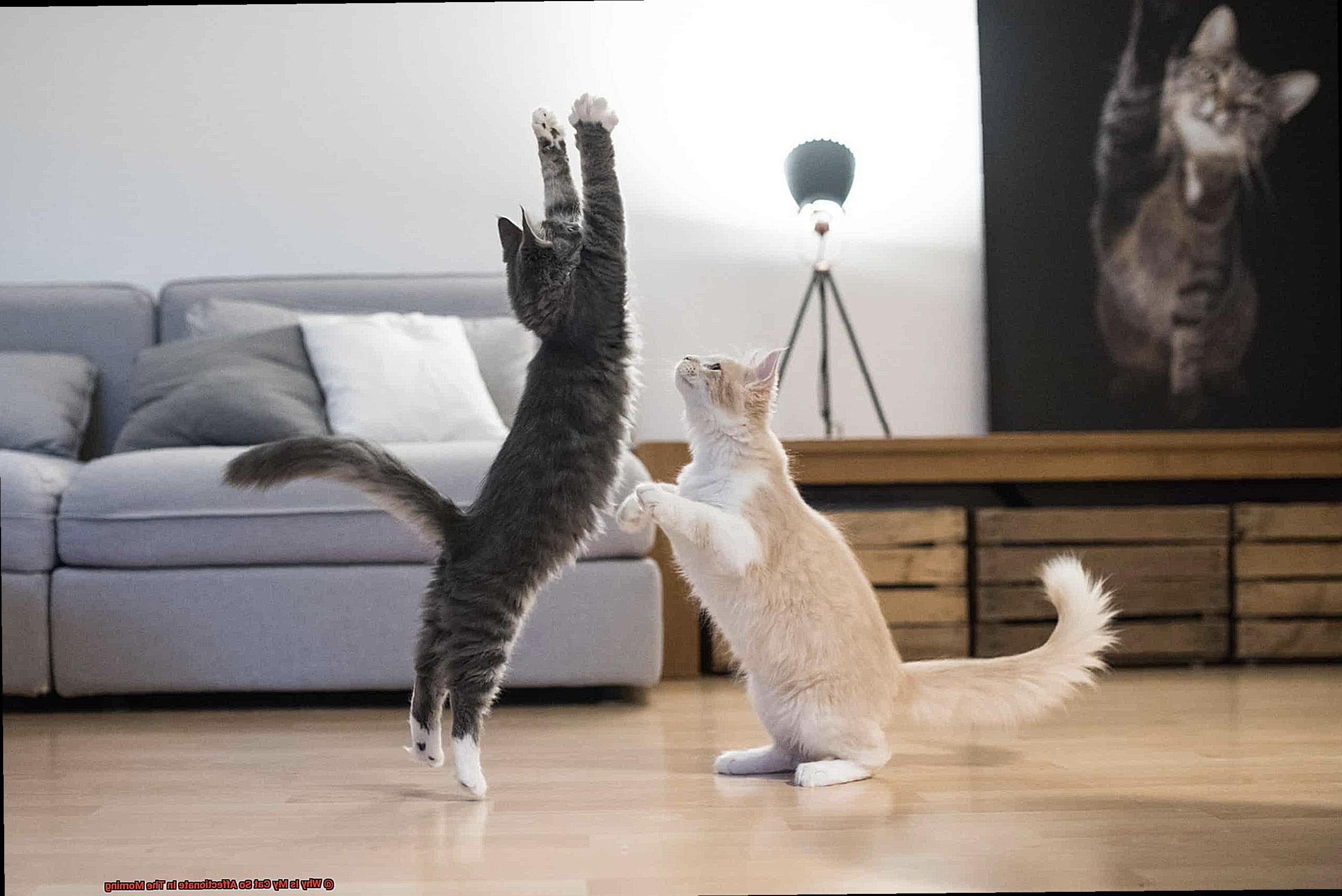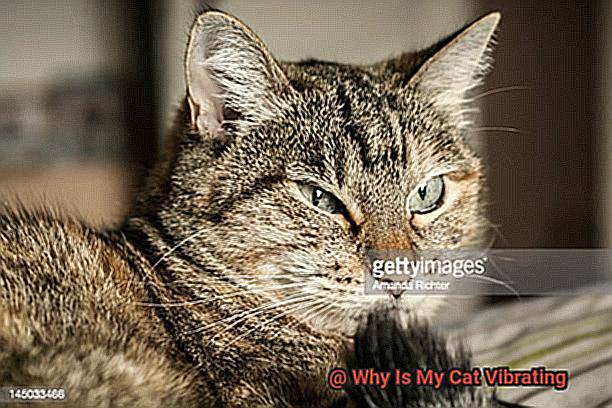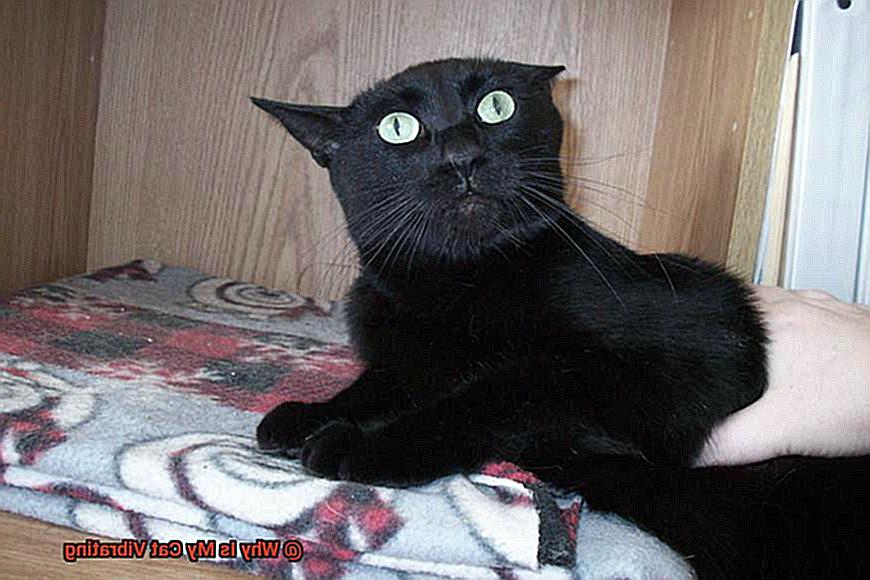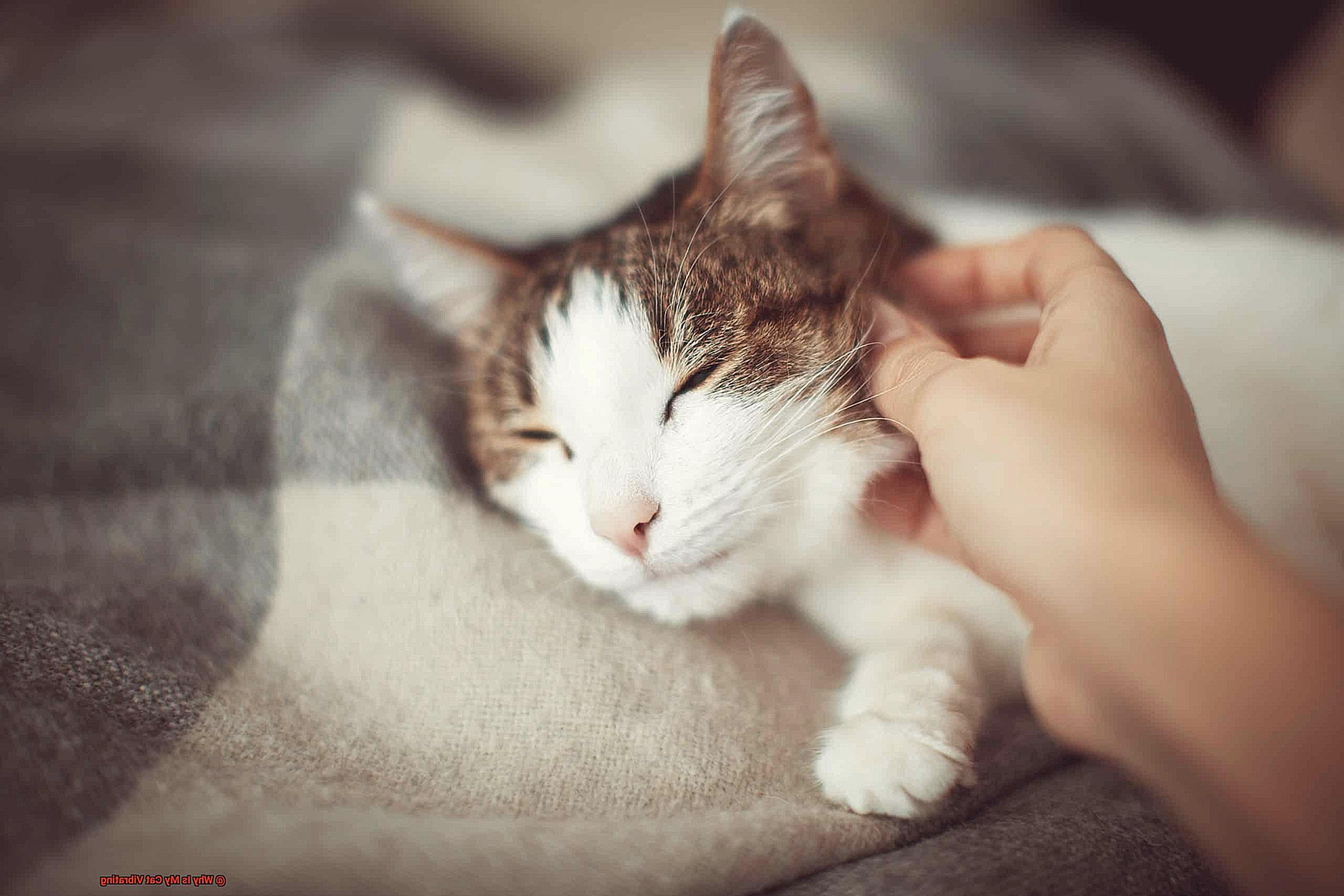Have you ever seen your cat vibrating? It may look like purring, but it’s not. If you’ve ever wondered why your cat is buzzing, you’re not alone. This strange behavior can be puzzling. Let’s explore the mysterious world of cats and find out why they shake their bodies.
There are several common explanations for why cats vibrate. In some cases, it may be a sign of pleasure or awe; in others, it could indicate sickness or distress. To figure out what’s really going on with your furry friend, let’s take a closer look at why cats vibrate and how to tell if they’re happy or stressed.
We’ll start by examining the various reasons cats may shake their bodies – from being excited to being afraid – and then move onto investigating how to tell when a noise means something is wrong. In the final phase, we’ll explore how to reduce stress and anxiety in cats so they can feel secure and safe in their environments. Join us as we discover why cats vibrate and learn how to keep them calm and healthy.
Signs of Pleasure: Purr-Vibe and Kneading
Purr-vibing and kneading are two of the most common signs of feline happiness and contentment.
Purring is a low, vibrating hum that cats make when they are feeling relaxed and content. While it’s usually a sign of pleasure, purring can also be used as a self-soothing behavior when cats feel uncomfortable, in pain or under stress.

So it’s important to observe your cat’s body language and other behaviors to determine whether their purring is a sign of pleasure or not.
Kneading, also known as “making biscuits”, is another behavior that cats may exhibit when they are feeling happy and content. This involves rhythmically pushing in and out with their paws against a soft surface like a blanket or pillow.

Kittens often knead their mother’s mammary glands to stimulate milk production, while adult cats may knead as a way to mark territory or show pleasure. During kneading, cats usually use their scent glands located on the paw pads to identify items or surfaces.
Signs of Pain or Illness
Cats are experts at hiding their pain or illness, but one of the tell-tale signs is vibrating. If your cat is vibrating, it could be a sign of discomfort and a warning that they need to go to the vet.
Apart from vibrating, other signs that your cat might be in pain or unwell include loss of appetite, hiding, lethargy, limping, vomiting, diarrhea and excessive grooming. If you notice any of these symptoms in your cat, it’s important to take them to the vet for a professional diagnosis.
It’s essential to pay attention to your cat’s behavior so you can determine whether their vibrating is due to pleasure or anxiety. For instance, if they are vibrating while purring or kneading then it’s likely that they are feeling relaxed and content.

However, if the vibrating is sudden and unaccompanied by other signs of pleasure then it could be an indication that something isn’t quite right.
Self-Soothing Mechanism and Stress Relief
Cats use vibrations as a self-soothing tool to help them cope with stress and anxiety. When cats are feeling uneasy or scared, they may start to vibrate as a way to calm themselves down. This could be because the vibrations provide a distraction from the anxious feelings or simply because the movement helps the cat release built-up tension.
On the other hand, cats may also vibrate when they are in a state of deep relaxation or pleasure. This is often seen when a cat is being petted or brushed, and the vibrations can indicate that the cat is enjoying the attention and feeling at ease.
It’s important for cat owners to understand these various ways their cats may use vibrations as a self-soothing mechanism. By recognizing when their cats are feeling anxious or relaxed, owners can provide the appropriate care and attention to help their pets feel more comfortable and content.
How to Identify the Cause of Cat Vibrating
Is your cat vibrating or trembling? While this can be a strange sight, it is actually quite common for cats. In this blog post, we’ll explore some of the reasons why cats vibrate and how to identify the cause of their behaviour.
Vibration as a Sign of Pleasure or Excitement.
One of the most common reasons for cats’ vibrating is due to pleasure or excitement. This usually appears as a small quiver or tremble and is often accompanied by purring and kneading – an activity known as “purr-vibe” which implies that your cat is content and relaxed.
Vibration as a Sign of Pain or Illness.
If your cat starts trembling without any other signs of happiness, it could be that they are in pain or ill. Cats often mask their pain, so if you find your cat shaking right now, it may be time to take them to the vet for an examination. If you cannot identify the cause, it’s best to seek medical advice immediately.
Vibration as a Self-Soothing Mechanism.

Similar to humans, cats can become anxious or ill, and vibrations can be used as a form of stress relief. If your cat is exposed to new people or environments, they may start to vibrate in order to cope with the situation. If this occurs frequently, it could be that your cat is distressed or uncomfortable.
Things to Look Out For When Examining Your Cat
Cats are incredibly adept at expressing their emotions through their behavior. As a cat owner, it is your responsibility to be aware of any changes in your cat’s behavior that could point to potential health issues. Here are some things to look out for when examining your cat:

Excessive vibrations
Excessive vibrations or twitching in the muscles may indicate underlying problems such as anxiety, pain, or neurological disorders. Keep an eye on the texture, thickness, and color of your cat’s fur as any changes could be a sign of skin infections, allergies, parasites or even stress.

Monitor Your Cat’s eating habits
Monitor your cat’s eating habits and litterbox usage as any change in appetite, frequency of urination or defecation could suggest an underlying health condition. Also keep track of their weight as sudden weight loss or gain can also be a sign of health issues.
Examine your cat’s eyes
Lastly, examine your cat’s eyes, ears and mouth regularly for any discharge, inflammation or discomfort which could indicate medical issues that should be addressed immediately by a veterinarian. Don’t forget to check their teeth too as dental problems such as gum disease or tooth decay are common in cats.
When to Seek Professional Advice From a Veterinarian

It can be difficult to tell when it’s time to seek professional advice from a veterinarian regarding your cat’s strange vibrating behavior. The good news is that there are some key signs to look out for.
If you notice any sudden changes in your cat’s behavior, such as lethargy or a lack of interest in playtime, it’s important to seek medical advice from a vet.
Additionally, if your cat is vibrating but also exhibiting other concerning symptoms like vomiting, diarrhea, or loss of appetite, this could indicate a wide range of health issues and should be addressed immediately.
If you’ve tried at-home remedies for cat vibrating but nothing seems to be working, it’s also essential to visit the vet. A veterinarian can do a thorough examination of your cat and determine the root cause of the vibrating, whether it be behavioral or health-related.
The Benefits of Knowing About Cat Vibrating
Do you ever notice your cat trembling or vibrating? This behavior can often be harmless and natural, but it can also indicate an underlying health condition. That’s why it’s important to know what your cat’s vibrations mean.
Knowing why your cat is vibrating can bring many benefits for both you and your furry friend.
For instance, it can help you identify signs of stress or anxiety in your pet. Cats can experience stress from a variety of sources, such as changes in their environment or routine, and this can manifest as trembling or vibrating. Being able to recognize these signs will allow you to reduce their anxiety and ensure they feel safe and comfortable in their surroundings.
Another benefit is deepening the bond between you and your cat. When you understand their moods and behaviors, you’ll be able to provide them with the comfort, affection, or playtime they need. This will create trust and understanding between the two of you, leading to a happier and healthier relationship overall.
Finally, knowing about cat vibrating can also help detect potential health issues in your pet.
While vibrations are usually harmless, they may sometimes suggest an underlying medical condition such as pain or illness. By being aware of any abnormalities in your cat’s routines, habits, and body language, you’ll be able to seek veterinary care if necessary – making sure that both of you get the best care possible.
kw779vX6Zic” >
Are you concerned about your cat’s vibrating?
Although it may appear alarming, it is not necessarily a cause for concern. In fact, this could be a sign that your cat is content and relaxed. In this article, we’ll explore the common questions about cat vibrating and why cats do it.
One of the most frequent questions is “Why does my cat vibrate when I pet him?” When a cat quivers or vibrates while being petted, it usually means that the cat is enjoying the interaction.
This behavior is commonly known as purring and indicates that your feline friend is feeling safe and secure in your presence. However, if the vibrations are too loud or vehement, it could be an indication of pain or discomfort, and a vet check-up may be necessary.
Cats may also start to vibrate in their sleep. This behavior is entirely normal during REM sleep and indicates that the cat is feeling relaxed and comfortable. However, if the vibrations are accompanied by other signs such as wheezing or coughing, a vet appointment should be scheduled.
In addition, cats may also start to vibrate on their owners as a sign of affection. This behavior is often accompanied by purring or kneading which shows that your kitty feels safe with you.
However, if the vibrations are strong or tense, it could indicate pain or discomfort and a visit to the vet may be needed.
Also Read: Why Do Cats Vibrate When They Stretch? – 21Cats.org
Conclusion
Cat vibrating can be a source of worry for owners, but it is important to understand why cats do this. From purr-vibes to signs of pain or illness, vibrations can be used by cats to soothe themselves and express their emotions.
To determine the cause of your cat’s vibrating behavior, observe their body language and environment closely. If your cat starts trembling without showing any other signs of happiness, it may indicate that they are in pain or ill, and veterinary assistance should be sought immediately.
Additionally, if you notice any sudden changes in your cat’s behaviour such as lethargy or a lack of interest in playtime, it could mean there is an underlying health condition that requires professional help.
Knowing why your cat is vibrating has many benefits – from increased confidence and compassion to improved health and well-being. It also helps identify potential health issues quickly so that you can seek veterinary care if necessary.
Ultimately, understanding why cats vibrate helps us give them the best care possible – from reducing stress levels to detecting medical problems early on.







